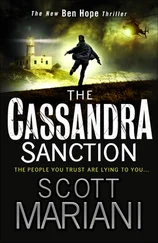In those days the need for concentrated leadership had prevailed over every other human consideration. It had been necessary to fight and destroy for ever vast systems of loyalties and beliefs that divided, misled and wasted the energies of mankind. It had been necessary to replace a chaos of production and distribution for individual profit by an ordered economic world system. But once this vast change-over was made and its permanence assured by the reconstruction of education on a basis of world history and social science, the task of a militant World-State was at an end. The task of the World Council was at an end.
“But then who is to govern the world?” asked Eric Gunnarsson, the youngest and most ambitious member of the Council.
“No need to govern the world,” said Donadieu. “We have made war impossible; we have liberated ourselves from the great anti-social traditions that set man against man; we have made the servitude of man to man through poverty impossible. The faculties of health, education, and behaviour will sustain the good conduct of the race. The controls of food, housing, transport, clothing, supply, initiative, design, research, can do their own work. There is nothing left for a supreme government to do. Except look up the world it has made and see that it is good. And bless it.”
“Yes,” said Eric Gunnarsson, “but — ”
These words are registered in the phonograph record of the debate. And with these two words Eric Gunnarsson, the ambitious young man who may have dreamt at one time of being President of the World, vanishes from history.
Donadieu went on to a brief history of government in human affairs, how at first man could only think in personifications and had to conceive a tribal God and a tribal King because he could not conceive of organized cooperation in any other way; how Kings remained all too individual and all too little social for anything but the narrowest tribal and national ends, and how therefore they had to be controlled and superseded by councils, assemblies and congresses, which in their turn became unnecessary. These ruling bodies clamped men together through ages of discord until at last the race could be held together in assured permanence by the cement of a universal education.
But the gist of that debate was embodied in the “Declaration of Mégève” with which the Conference concluded its deliberations.
“The World-State now follows all the subordinate states it swallowed up to extinction; the supreme sovereign government, which conquered and absorbed all minor sovereignties, vanishes from human affairs. The long, and often blind and misdirected, effort of our race for peace and security has at length succeeded, thanks to this great Council that now retires. It retires with the applause and gratitude of all mankind. And now in serenity and security we can survey the property it has redeemed from waste, this planet and its possibilities, our own undeveloped possibilities too, and all the fullness of life that lies before us. This is the day, this is the hour of sunrise for united manhood. The Martyrdom of Man is at an end. From pole to pole now there remains no single human being upon the planet without a fair prospect of self-fulfilment, of health, interest, and freedom. There are no slaves any longer; no poor; none doomed by birth to an inferior status; none sentenced to long unhelpful terms of imprisonment; none afflicted in mind or body who are not being helped with all the powers of science and the services of interested and able guardians. The world is all before us to do with as we will, within the measure of our powers and imaginations. The struggle for material existence is over. It has been won. The need for repressions and disciplines has passed. The struggle for truth and that indescribable necessity which is beauty begins now, unhampered by any of the imperatives of the lower struggle. No one now need live less nor be less than his utmost.
“We must respect the race and each other, but that has been made easy for us by our upbringing. We must be loyal to the conventions of money, of open witness, of responsibility for the public peace and health and decency: these are the common obligations of the citizen by which the commonweal is sustained. We must contribute our modicum of work to the satisfaction of the world’s needs. And, for the rest, now WE CAN LIVE. No part of the world, no work in the world, no pleasure, except such pleasure as may injure others, is denied us. Thanks to you, Heroic Council; thanks beyond limit to you.”
Book the Fifth
The Modern State in Control of Life
Table of Contents
1. Monday Morning in the Creation of a New World
Table of Contents
With the Declaration of Mégève in 2059 C.E. the Age of Frustration, the opening phase of the Era of the Modern State, came to an end. Let us recapitulate that history in its barest outline. The World-State had appeared dimly and evasively, as an aspiration, as a remote possibility, as the suggestion of a League of Nations, during the World War of 1914-18; it had gathered experience and definition throughout the decades of collapse and disaster; it had formally invaded human politics at the Conference of Basra in 1965 as manifestly the only possible solution of the human problem, and now it had completed its conquest of mankind.
The systematic consolidation of that conquest had begun in earnest after the Second Conference of Basra in 1978. Then the World Council had set itself to certain tasks that had been so inconceivable hitherto that not the most daring sociologists had looked them in the face. They had contented themselves with pious aspirations, and taken refuge in the persuasion that, if they were sufficiently disregarded, these tasks would somehow do themselves. They were tasks of profound mental reconstruction, reconstruction going deeper into the substratum of the individual life than anything that had ever been attempted before. In the first place traditions of nationality had to be cleared away for good, and racial prejudice replaced by racial understanding. This was a positive job against immense resistances. Next a lingua-franca had to be made universal and one or other of the great literature-bearing languages rendered accessible to everyone. This again was not to be done for the wishing. And thirdly, and most evaded of all three obstacles that had to be surmounted, issue had to be joined with the various quasi-universal religious and cultural systems, Christianity, Jewry, Islam, Buddhism and so forth, which right up to the close of the twentieth century were still in active competition with the Modern State movement for the direction of the individual life and the control of human affairs. While these competing cultures remained in being they were bound to become refuges and rallying-shelters for all the opposition forces that set themselves to cripple and defeat the new order of the world.
We have told already how that issue was joined, and shown how necessary it was to bring all the moral and intellectual training of the race into direct and simple relations with the Modern State organization. After 2020 there is no record of any schools being open in the world except the Modern State schools. Christianity where it remained sacerdotal and intractable was suppressed, but over large parts of the world it was not so much abolished as watered down to modernity. Everywhere its endowments had vanished in the universal slump; it could find no supply of educated men to sustain its ministry; the majority of its churches stood neglected and empty, and when the great rebuilding of the world began most of them vanished with all the other old edifices that lacked beauty or interest. They were cleared away like dead leaves.
The story of Islam was closely parallel. It went more readily even than Christianity because its school organization was weaker. It was pinned very closely to the teaching of Arabic. The decadence of that language shattered its solidarity much as the disuse of Latin disintegrated Western Christianity. It left a few-score beautiful mosques as Christianity left a few-score beautiful chapels, churches and cathedrals. And patterns, legends, memories remained over in abundance, more gracious and lovely by far than the realities from which they were distilled.
Читать дальше











